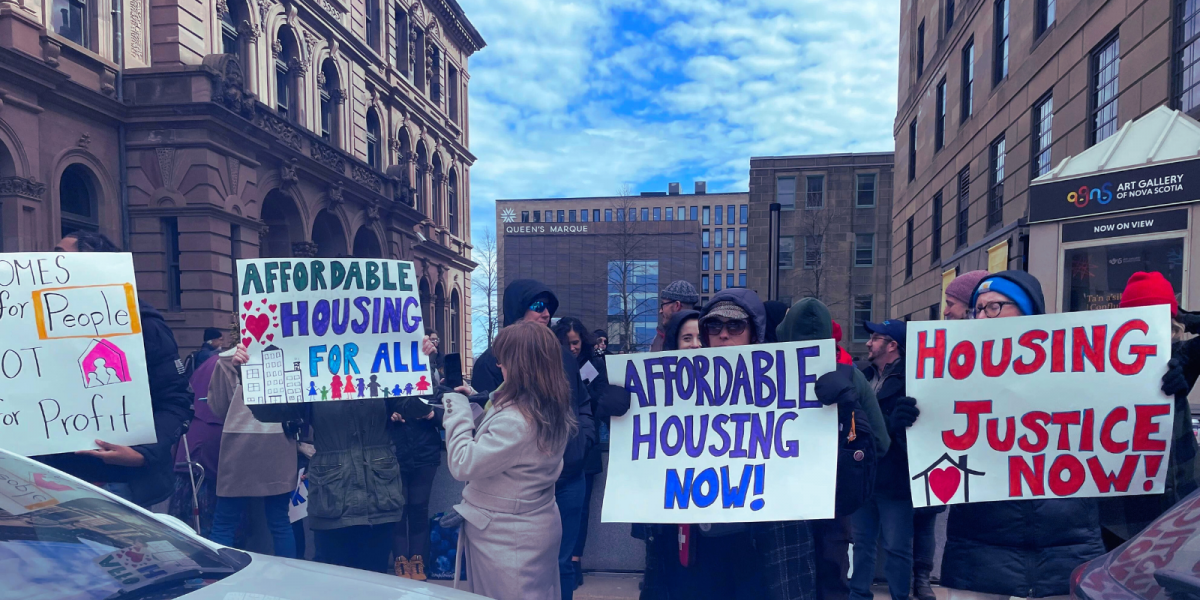Tenants in a Dartmouth, Nova Scotia apartment building have successfully fought back against an attempt by their new landlord to evict them.
Landlord Adam Barrett bought the property at 71 Primrose St. in 2022. In January 2023, he attempted to displace tenants from all 23 units. While tenants in six units took compensation to vacate their apartments, tenants in the remaining 17 units refused to be evicted. Barrett then moved to evict the remaining tenants by claiming that their units required substantial repairs.
In reality, Barrett was looking to displace the existing tenants from their homes in order to make some cosmetic repairs and raise the rents from $600 to $1500 per month, a model he is known for using.
In April, Residential Tenancies found in favour of the tenants and denied Barrett’s eviction applications, saying that he was not acting in good faith. While Barrett initially planned to appeal, he withdrew the appeal last week.
Renovictions good business for landlords
For many years, landlords like Barrett have had a very clear strategy for increasing their profits on the backs of workers and their families.
Landlords buy small to medium-sized buildings, where tenants are often paying lower than average rents. These buildings may or may not need upgrades or repairs. Regardless, the new landlord evicts the tenants. Once the units are empty, some repairs or upgrades may be made to the units. Some units might just get a new coat of paint. The units then go back on the market at two- or three-times the price.
This approach was shockingly easy for landlords because prior to the COVID-19 pandemic there was no rent control for tenants. Landlords could simply serve tenants with a notice that their rent was doubling or tripling, and those tenants who could not afford the new rent had to find somewhere else to live.
But, since the start of the COVID-19 pandemic, tenants and their allies have fought for new protections when it comes to rental increases and renovictions.
Tenants use new protections to fight back
In 2020, when people were required to stay home, tenants and their allies pushed for rent control and stronger protections against evictions.
In November 2020, the Liberal government of the day introduced a temporary rent cap and a ban on renovictions. Both measures were retroactive to September 2020 and set to be in place until the COVID-19 state of emergency was lifted.
While Liberal and Conservative governments would have preferred to cancel these pandemic measures, tenants and housing activists kept up the pressure and the Conservatives extended the rent cap once again in March 2023. The Conservatives did, however, lift the ban on renovictions, bringing in new rules around them instead. Under the new rules, the landlord and tenant must both agree to end the tenancy due to a renovation in writing, but if the landlord and tenant do not agree, the landlord must apply for an eviction order.
The tenants at 71 Primrose St. were able to use these new rules to fight back against Barrett’s attempt to displace them from their home.
Legal protections not enough to stop displacement
While these victories for tenants are important, workers will need to continue organizing if we are going to protect our communities from the greed of landlords.
The Conservative government has given landlords a huge gift by leaving open a legal loophole in the rent cap through the use of fixed-term leases. The cap is also set to increase to five percent on January 1, 2024 and, as of now, will expire at the end of 2025.
Landlords like Barrett will continue to look for ways to build their wealth through exploiting the housing needs of workers and their families. But tenants can and must fight back.
For now, the tenants at 71 Primrose St. can stay in their homes. And hopefully, their victory will help inspire other tenants to resist, organize with their neighbours, and fight to keep their homes too.
Did you like this article? Help us produce more like it by donating $1, $2, or $5. Donate


